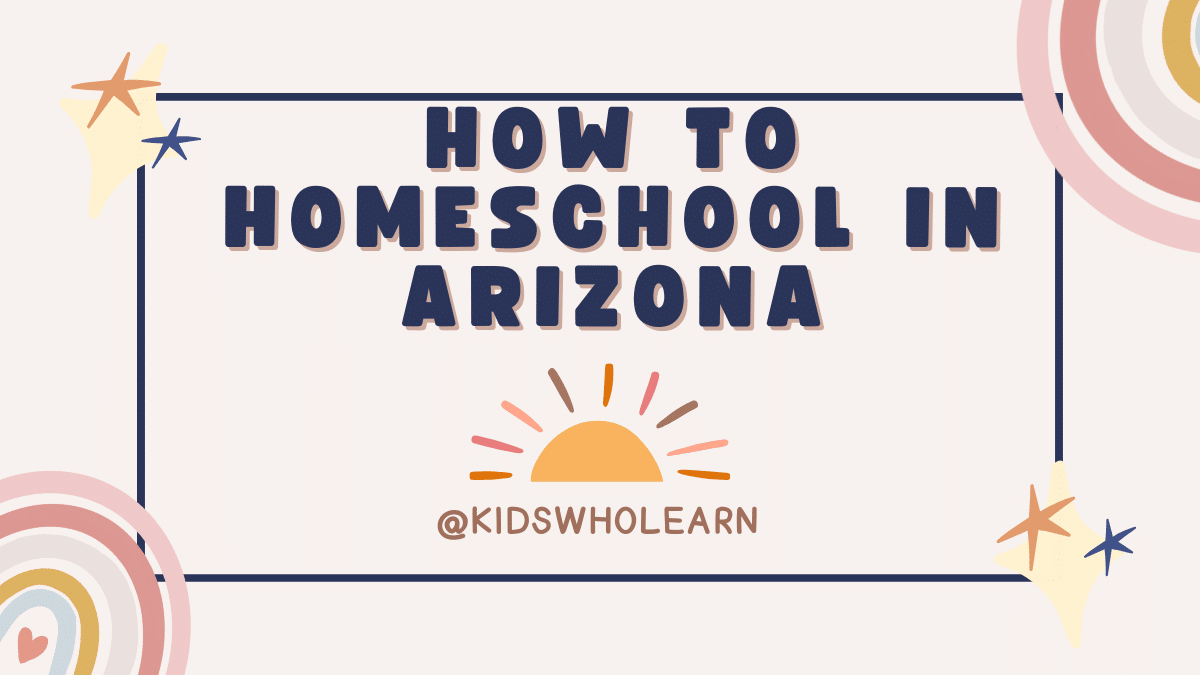Homeschooling in Georgia is a rewarding and flexible educational option for many families seeking to shape their children’s learning experiences. As a parent or guardian considering this path, it’s essential to become familiar with Georgia’s homeschooling laws and requirements, as well as the various resources available to support a successful homeschooling journey.
To get started with homeschooling in Georgia, you’ll need to familiarize yourself with the legal requirements and procedures, such as declaring intent to homeschool, drafting a custom curriculum, and ensuring your homeschool environment provides a conducive atmosphere for learning. Additionally, connecting with other homeschoolers, especially in regards to navigating high school requirements, is crucial for encouragement and support.
Key Takeaways
- Familiarize yourself with Georgia’s homeschooling laws and requirements
- Draft a custom curriculum and create a conducive learning environment
- Connect with other homeschoolers for support and guidance in your journey
Understanding Georgia’s Homeschooling Laws
Legal Requirements
In Georgia, you have the option to homeschool your children. To do this, you must comply with state laws. First, you need to have a high school diploma or GED equivalent. The homeschooling program must provide a basic academic educational program, covering reading, language arts, math, social studies, and science.
You are required to teach your children for 4.5 hours a day, at least 180 days per academic year, for a total of 810 hours. Each school year, you must report their progress, including attendance records and annual standardized testing results.
Filing A Declaration Of Intent
To get started, you need to file a Declaration of Intent with the Georgia Department of Education within 30 days of starting your homeschooling program. You should also make sure to submit it by September 1st each year.
You can submit it online or by mail. Include the following information:
- Your name and address
- Your child’s name, age, and grade level
- The homeschooling start and end dates
The Department of Education will issue a 36-digit code to confirm receipt, which can be used for obtaining a Georgia driver’s license or learner’s permit.
Annual Testing Requirements
Georgia requires homeschooled students to take standardized tests each academic year. This testing helps gauge your child’s progress and ensures they meet educational standards. The tests should be given in grades 3, 6, 9, and 12. You can choose between nationally recognized exams, such as:
- Stanford Achievement Test
- Iowa Test of Basic Skills
- California Achievement Test
- Metropolitan Achievement Test
Have your child tested in a group setting, with a certified teacher, or explore other testing options as allowed by law. Remember to keep the test results for three years as part of your homeschool recordkeeping.
Drafting Your Homeschool Curriculum
Subjects To Cover
When planning your homeschool curriculum in Georgia, it’s essential to include subjects that cover the core areas of learning. Consider adding the following subjects to your curriculum:
- Language Arts: Reading, writing, spelling, and grammar are essential components of a well-rounded education. Encourage your child to explore different genres and practice their writing skills regularly.
- Mathematics: Ensure your math curriculum includes arithmetic, geometry, and algebra so your child can develop a strong foundation in problem-solving and logical reasoning.
- Social Studies: Incorporate history, geography, and social sciences, focusing on both local and global perspectives.
- Science: Introduce your child to various branches of science, such as biology, chemistry, physics, and earth science to pique their curiosity about the world around them.
Remember to tailor the content and difficulty level to your child’s age and learning style, and frequently review the materials to keep them engaged and stimulated.
Electives And Extracurriculars
In addition to the core subjects, consider offering electives and extracurricular activities to enrich your homeschooling experience. These options can help your child explore their interests and develop well-rounded skills. Here are some ideas:
- Foreign Language: Learning a foreign language can offer cognitive benefits and expose your child to different cultures.
- Arts: Explore various artistic mediums, such as painting, drawing, photography, music, or dance to encourage creativity and self-expression.
- Technology: Introduce your child to computer programming, graphic design, or video editing to help them develop valuable 21st-century skills.
- Physical Education: Incorporate regular physical activities to maintain fitness and teach the importance of a healthy lifestyle.
By offering varying electives and extracurricular activities, you can help your child discover their passions while creating a well-rounded educational experience.
Creating a Productive Learning Environment
As you begin homeschooling in Georgia, it’s crucial to create a productive learning environment for your child. Start by selecting a specific area in your home that will serve as the designated learning space. Make sure it is clean, well-lit, and free of distractions to help your child focus on their studies.
To foster organization and structure, set up a designated workspace for your child. This could include a desk, a comfortable chair, and storage spaces for books, supplies, and learning materials. Personalize the space by allowing your child to decorate it with their artwork or educational posters.
Establishing a schedule is essential when homeschooling. Work together with your child to create a daily routine that includes time for focused lessons, independent study, breaks, and extracurricular activities. Try to maintain consistency and be mindful of your child’s natural learning pace.
Incorporating various teaching methods and resources can enhance your child’s learning experience. Use a mix of:
- Textbooks: Choose age-appropriate and grade-level books to cover all necessary subjects.
- Online resources: Utilize educational websites, apps, and videos to supplement traditional materials.
- Hands-on activities: Engage your child with experiments, crafts, and interactive assignments.
- Field trips: Plan visits to museums, parks, and cultural events to provide real-life learning experiences.
Lastly, allocate time for socialization, as this is vital for your child’s emotional and social growth. Connect with other homeschooling families, join local homeschooling groups, and participate in activities and events tailored for homeschoolers.
By building a productive learning environment and following these suggestions, you’ll set the stage for a successful homeschooling experience in Georgia.
Keeping Records And Portfolio
As a homeschooling parent in Georgia, it’s essential to keep accurate and organized records of your child’s education. In this section, we’ll discuss two key elements of record-keeping—Report Cards and Progress Reports.
Report Cards
Creating report cards for your homeschooler is a great way to track their academic progress and achievements. Your report cards should include the following details:
- Subjects: List all the subjects studied during the grading period.
- Grades: Assign letter or numerical grades to your child’s performance in each subject.
- Attendance: Keep track of the total number of homeschooling days completed.
Here is an example of a simple report card table for a homeschooler:
| Subject | Grade | Attendance |
|---|---|---|
| Math | A | 40 |
| English | B+ | 40 |
| Science | B | 38 |
| Social Studies | A- | 39 |
Progress Reports
Besides report cards, it’s important to create progress reports that document your child’s growth over time. As you create progress reports, consider including the following elements:
- Goals: Set specific, measurable, and achievable goals for your child.
- Progress: Use bullet points to highlight your child’s achievements, areas of improvement, and any challenges faced.
- Educational activities: Describe the activities, projects, or field trips taken during the reporting period to help your child meet the set goals.
Here’s an example of a progress report for a homeschooler in Math;
Goal: Improve multiplication and division skills.
Progress:
- Demonstrated mastery of multiplication facts up to 12.
- Improved long division skills.
- Practiced using multiplication and division word problems during math lessons.
Educational activities:
- Utilized online math games to reinforce multiplication and division concepts.
- Completed a multiplication project to reinforce learning.
- Visited a local museum with math exhibits to explore real-life applications of multiplication and division concepts.
By diligently maintaining Report Cards and Progress Reports, you’ll be able to effectively monitor your child’s educational journey while homeschooling in Georgia.
Homeschooling High School in Georgia
Diploma Requirements
To successfully homeschool high school in Georgia, you need to adhere to the state’s diploma requirements. These include completing a curriculum that covers the following subjects:
- 4 units of English/Language Arts
- 4 units of Math
- 4 units of Science
- 3 units of Social Studies
- 1 unit of Physical Education
- 2 units of Foreign Language
- 1 unit of Fine Arts
- 4 units of Elective Courses
You can design your high school curriculum around these subjects, ensuring your student has a well-rounded education that meets Georgia’s homeschooling requirements.
College Admissions
When it comes to college admissions, Georgia’s colleges and universities have varying requirements. It is crucial to research the specific admissions requirements of each institution your student plans to apply to. Some standard requirements include:
- High school transcript with course descriptions: Keep detailed records of your student’s completed coursework, grades, and credits earned. This documentation will help when applying to colleges.
- Standardized test scores: Most colleges require SAT or ACT scores. Encourage your student to prepare for these tests and take them in their junior or senior year.
- Letters of recommendation: Request letters from individuals who can vouch for your student’s academic and personal qualities, such as tutors or community leaders.
- Personal essay: Your student should be prepared to write a personal essay, which will allow colleges to understand their motivations, aspirations, and unique qualities.
By understanding diploma requirements and preparing for college admissions requirements, you can support your student’s homeschooling journey through high school in Georgia. Remember to stay organized, maintain records, and help your student set and reach their goals.
Connecting With Other Homeschoolers In Georgia
It can be incredibly helpful to connect with other homeschooling families in Georgia. This will not only offer you valuable resources and information, but also create lasting friendships for your children. Here are a couple of ways you can get involved with the homeschool community in Georgia.
Local Support Groups: Start by looking for local homeschool support groups. These groups often host events like field trips, park days, and social gatherings where your family can meet others with similar educational choices. A quick internet search for homeschool groups in your county should point you in the right direction.
Online Forums and Social Media: In addition to meeting families in person, you can also connect with other Georgia homeschoolers online. Join Georgia-specific Facebook groups, participate in forums, or follow homeschooling blogs written by Georgia families. These virtual connections can provide valuable advice and support throughout your homeschooling journey.
Conferences and Workshops: Georgia homeschooling conferences and workshops can offer a wealth of knowledge and resources. By attending these events, you’ll have the chance to hear from experienced homeschool parents, browse curriculum options, and meet new friends. Make a note to attend events like the Southeast Homeschool Expo or the annual Georgia Home Education Association conference.
Remember, fostering connections with other homeschoolers in Georgia can enhance your homeschool experience and provide valuable guidance. By participating in support groups, online forums, and conferences or workshops, you’ll create a strong network for you and your family.
Frequently Asked Questions
What are the requirements for homeschooling in GA?
If you plan to homeschool your child in Georgia, it’s essential to understand the state’s requirements. First, you need to submit a Declaration of Intent to the Georgia Department of Education within 30 days of starting your homeschool program. You should also teach for 4.5 hours a day, 180 days a year, covering subjects like reading, writing, mathematics, science, and social studies. Furthermore, it’s compulsory for parents to have at least a high school diploma or GED equivalent.
How do I register my child for homeschool in GA?
To register your child for homeschooling in Georgia, fill out the Declaration of Intent form available on the Georgia Department of Education website, and submit it within 30 days of starting your homeschool program. Make sure to provide all necessary information, such as name, address, contact details, and children’s details, including their birthdates. Remember to re-submit the Declaration of Intent annually by September 1st.
What are the best homeschool curriculums in GA?
In Georgia, homeschool families can choose from various curriculums that best suit their children’s learning styles and educational goals. Some popular options include Classical Conversations, ABEKA, Bob Jones University Press (BJUP), Time4Learning, and Oak Meadow. Consider factors like flexibility, teaching methods, cost, and support resources when selecting a curriculum.
Are there free online homeschool programs available in GA?
Yes, Georgia offers free online homeschool programs like the Georgia Virtual School (GAVS) and Georgia Connections Academy. Both programs provide a comprehensive curriculum and resources to help you stay on track with your child’s education. However, Georgia Cyber Academy is an online public charter school, so it is not considered a traditional homeschooling option.
What are the testing requirements for homeschoolers in GA?
Georgia requires homeschool students to undergo standardized testing at least every three years, beginning in the 3rd grade. The tests must be nationally recognized and meet specific criteria. You can choose from several testing options, such as the Iowa Test of Basic Skills, Stanford Achievement Test, or California Achievement Test. Keep the test scores on file for at least three years as the Georgia Department of Education may request them.
What does the Georgia Department of Education say about homeschooling?
The Georgia Department of Education offers guidance and resources for homeschooling families to help them comply with the state’s requirements. They advise parents to submit a Declaration of Intent, maintain annual attendance records, provide standardized testing for their children, and teach the required subjects. Additionally, the department provides resources like homeschool FAQs, guidelines, and links to forms needed to homeschool in Georgia.







